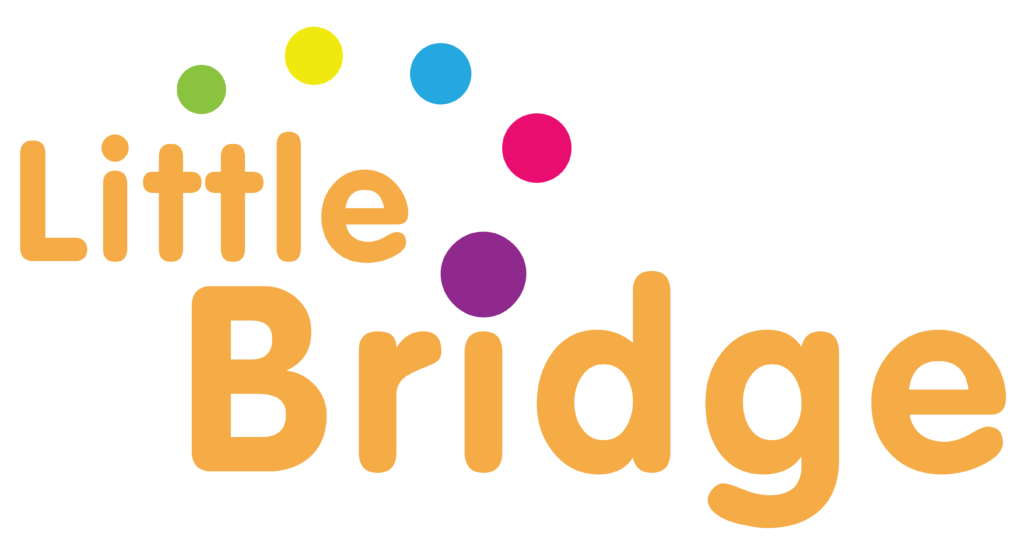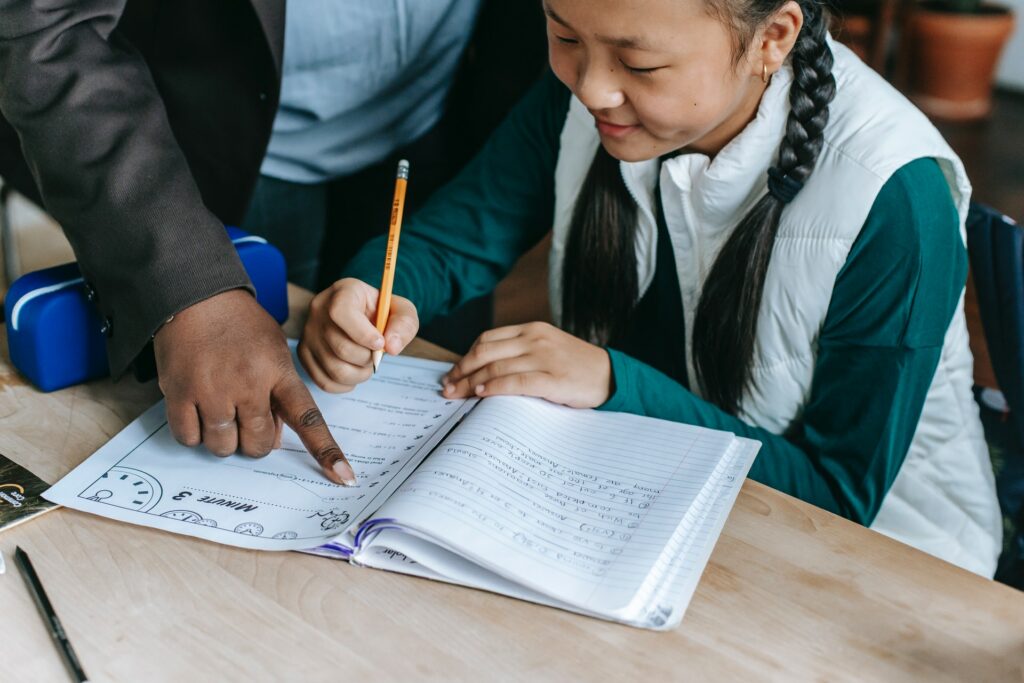Emma Rogers, co-Founder / CEO of Little Bridge explains why learning English is important for your child. Originally published on Medium on Feb 22, 2019
Your child can start their English learning journey with Little Bridge.
Get started with a free account today!
A while ago I, like many others, watched Greta Thunberg, the young, articulate, Swedish climate activist. She was speaking at the UN Climate Change COP24 Conference. Her passion, her calm conviction, her clarity of vision, the pure intensity of her message, was truly awesome. Both she and what she had to say were unforgettable. With the Friday protests of school children around the world, she was assembling a global movement. And she talks to her audience in English.
Now I don’t know much about Greta’s background but it’s clear her father speaks English fluently. She is from a country which has significant numbers of people speaking English as a second language. Wikipedia tells us that around 86% of the population of Sweden are English speakers. Indeed, as the Swedes themselves say, it’s more of a parallel language than a second language.
The significance here is that, by using English, Greta is able to connect directly to other global and digital citizens. She’s doing it in the language of the internet and using the social tools of this medium. The power is hers, not delegated to a translator (human or machine).
Why is learning English important for your child?
English is the operating system of the world. It’s also a huge industry, dominated by giant ‘household names’ in the world of education. Some children spend around 10 years studying English in mainstream schools. Others amplify this by attending after school clubs and classes. These additional study centres are sometimes criticised as fuelling the potentially unhealthy pressure to succeed. More positively, they underscore the global drive from families who genuinely want to help their children to learn English.
Yet, amid this frenzy of demand, there are children around the globe who don’t get 10 years of English at school. Vast numbers are denied access to a quality learning experience because of affordability. We hear about the global shortage of qualified English teachers and about the inequality of teacher training programs worldwide.
Also, let’s remember there are children who don’t get to go to school at all.
The traditional English learning business
The annual sales of textbooks for learning English, as well as some digital products, are eye-wateringly huge. Over $34.1bn in 2015. That’s 63% of the total language learning market in revenues, the largest concentrated section of the international market.
Nevertheless, something isn’t working.
The British Council is one of the most significant promoters of the English Language. Its mission also includes, ‘changing lives by creating opportunities, building connections and engendering trust’. In a recent report, they noted that employers across Europe are unhappy. Bosses in companies say that, ‘English is the most important language as far as business is concerned’. But finding suitable candidates is considered ‘difficult.’ They are looking for communicators, ‘near fluent speakers, able to converse in English.’ It’s not only the multinationals. This goes for smaller, often family-owned business sectors too, especially in tourism and hospitality.
So another pillar of the education industry grows — adult English language learning —to meet this need. It’s designed for those late to discover the value of a working knowledge of English. Or for those who may have known this all along, but somehow never achieved success during their time at school.
Meanwhile, there’s the view that the earlier you learn English, the more likely you’ll achieve success. Today’s children are exposed to the English Language from an early age, through film, TV and YouTube and pop music. And also from social media.
Social media, a place for kids?
We hear a lot about the negative impacts of social media on young people’s lives. Yet there are many voices (including young people themselves) who champion the positive and the good that can be achieved.
For example, according to an article in The Washington Post, 70% of teens use social media more than once a day (compared with 34% in 2012). Surprising to many adults perhaps, 25% say social media makes them feel less lonely (compared with 3% who say more). 18% say it makes them feel better about themselves (compared with 4% who say worse). And 16% say it makes them feel less depressed (compared with 3% who say more).
Engaging with teenagers, all active on social media, I learned that control is the key. They reflected on how you can curate your online self. How you develop skills to do this, learning so much about yourself as you go. They understand the dangers of narcissism and the relentless pressure to conform to impossible, idealised ‘norms’. They also recognise that children younger than themselves are drawn to social media.
So they’re eager to present an alternative view. ‘It’s about education,’ they say. ‘The sooner you learn to deal with this, the sooner you can use social media as a life-enhancer. We should be teaching really young children so they’re ready for a different digital world.’
Social media, giving a voice to children
All the teens I talked with recognised that you can learn to shape your story. They say it can help you ‘find your tribe’. It encourages you to reach out, expand your horizons and discover new experiences; allows you to be both at the heart of something and also reminds you that you’re just a part. And crucially, encourages you to face and embrace differences.
Today, one of the most important tasks for educators is to help children to build globally-applicable, critical skills. These include curiosity, collaboration, reasoning, resilience and communication. We can all agree what is wrong when children access adult social media sites . They can go from zero experience of the medium to full engagement in an alien, often entirely inappropriate world. Conscious of dangers and concerns, we should be on the front foot. In a connected world, we can create safe social spaces for children and reprioritise what and how we teach them, to prepare for a digitally-enabled world.
Little Bridge blends learning confidence in English and social media skills
At Little Bridge we believe the time to start introducing children to a safe social media experience is around the same time they begin to learn English. These skills are symbiotic. Together they represent a new and purposeful way of engaging and empowering children everywhere. The way we learn English should be driven by a need to communicate. In fact we think that learning about social media and global citizenship should happen before providing children with a mobile device.
Access to these new social experiences must be democratic and at least as ubiquitous as connectivity. Today 55.1% of the world’s population are online – and growing. Just as the English language is not a second language for the Swedes, online is not so much about a second, additional world. It’s a virtual one that runs parallel to everyday physical existence.
Whatever anyone’s views about her mission, there’s no doubt that Greta Thunberg has mastered both these important tools. She employs them internationally to great effect to deliver her message, via social channels, to inspire thousands of other young people across the world.
Not everyone has a message like Greta Thunberg. But equally, all children have a voice and the right to be heard. For children everywhere, it’s fun making new friends, expanding horizons, and communicating in English. We adults can help each one of them join the global conversation. And by doing so we are the encouraging skills they will need to thrive in a digitally driven future.
Join us today as social engagement changes the way children learn!
When children join Little Bridge’s safe community, they are motivated to learn English quickly to communicate with international friends. Your child can do this too and you can watch it happening. Find out more by creating your free Parent Account here.
Emma Rogers, co-founder of Little Bridge.
Enjoyed reading Why is learning English important for your child? Visit Emma’s Medium profile to learn more about social learning.


